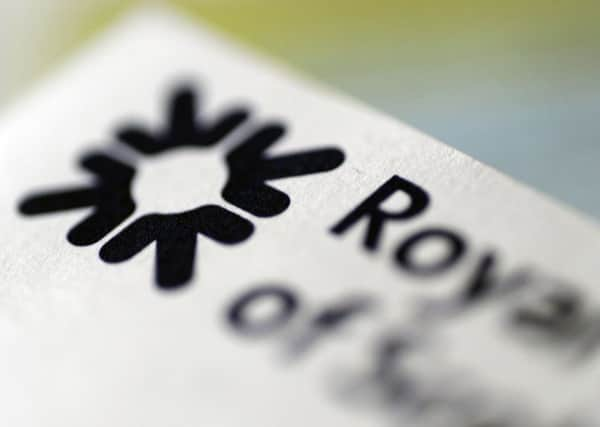Leaders: Bad timing for Osborne’s RBS shares sale


Inevitably, there has been a backlash from opposition parties who say the taxpayer has been short-changed and the Chancellor has chosen the wrong time to try to recoup the government’s outlay.
Both criticisms ring true, because it can hardly be denied that this deal represents a loss for the taxpayer. It is also reasonable to hold George Osborne to account over the timing of the sale. The shares traded at 330p this week compared to a market price of over 400p six months ago. And what’s more, yesterday’s transaction came at a discount of 7.6p on Monday’s closing price, an offer only made to City of London institutions, not to the public. Eventually, someone will make a handsome return from this sell-off when the share price rises, but it will not be the taxpayer or the individual investor.
Advertisement
Hide AdAdvertisement
Hide AdNevertheless, we cannot forget that the government did not bail out RBS to make a profit in the future, and nor could the Treasury have expected with any confidence to see all of the funds repaid one day. The lifeline was thrown to the bank to keep it in business, and prevent an even greater financial catastrophe than the one experienced seven years ago, which was bad enough. We can’t turn back the clock and recreate the circumstances, mood and pressures of that time which led to the decision to buy a 78 per cent stake in RBS for £45bn. Unthinkable financial consequences would have been suffered if RBS had gone under, throwing the UK economy into turmoil.
But even if we accept that the intervention was essential and a later loss at a sell-off would be a relatively small price to pay, the Chancellor does have a case to answer over the timing of the sale. His reasoning – prompted by Bank of England governor Mark Carney – is that the sale “would promote financial stability”. The difficulty with this argument is that the public cannot see the sort of instability that would justify a loss of £1bn on the sale of just a 5 per cent holding. We are well aware of what financial instability looks like. It’s the reason this arrangement exists in the first place.
Nor is it enough to say the proceeds are needed to offset UK debt. A long-term plan is in place to reduce that deficit, and a fire sale at this stage is not necessary to meet the timetable.
No-one – other than politicians – will expect the government to get back every penny for the taxpayer, but Mr Osborne must seek a better deal for the sale of the next chunk of the shareholding. If that requires a lengthy wait, then so be it. It will be worth every penny – or every billion.
More honesty is needed over alcohol
New research on alcohol consumption recommendations underlines the widely-held suspicion that the guidelines are largely ignored. It would be interesting to know what multiple is applied by GPs when patients offer a mumbled answer to the question of how many units they consume each week.
The UK Centre for Tobacco and Alcohol Studies has come to the conclusion that guidance which says men should only drink three to four units of alcohol per day, and women two to three units, is not relevant to British lifestyles which do not involve drinking every day and are more likely to feature significant consumption at a weekend. The suggestion is that the public will take more notice of modified guidelines which offer separate advice for regular drinking and for single occasion drinking.
This makes sense. However, it also acknowledges that we have a problem with binge drinking, and there is a danger that split guidelines will make the practice seem more acceptable to those who over-indulge at weekends.
Binge drinking carries obvious health risks, and can lead us into dangerous situations. Yet having “a skinful” every Friday night retains a social acceptability in Scotland – not one of our proudest attributes.
Advertisement
Hide AdAdvertisement
Hide AdImproving our relationship with alcohol is a complicated challenge, but education and better understanding should lead to increased awareness and a change in attitudes. More appropriate consumption guidelines will hopefully encourage greater honesty, and help the public to treat this problem more seriously than before.